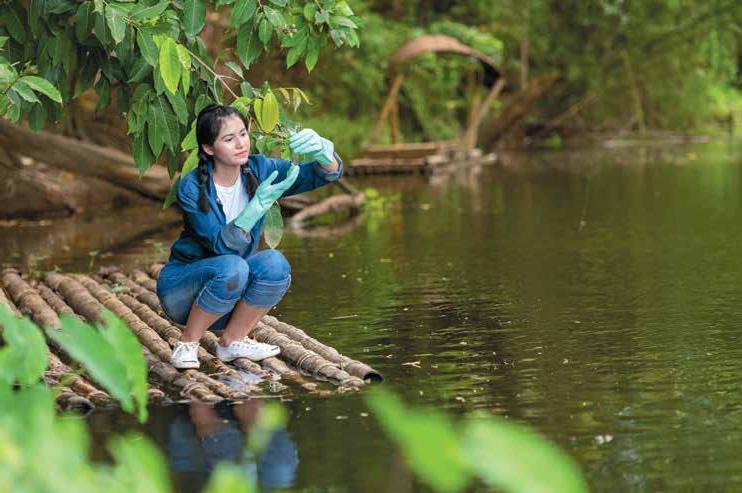
2 minute read
FEATURE – Promoting gender inclusion in water management
Promoting gender inclusion in water management
Advertisement
Promoting a more sustainable and integrated approach to the management of water resources – and so building resilience to climate change – relies on all groups, especially women and girls, having equal access to resources, information, and decisionmaking. GWP introduced a dedicated strategy to enhance the engagement of women in 2014, and continues to make significant progress in this important area. Work to promote inclusion in 2019 focused on mobilising resources around four identified gender ‘action areas’.
Student conducting water quality assessment, Asia
Chilufya Chileshe, WaterAid
Taking a gender-transformative approach to development in Africa As an important part of the Africa Water Investment Programme, the new Water, Climate, Gender, and Development Programme aims to address gender inequality across Africa by taking a gender-transformative approach to development at the water–climate interface. It will mobilise significant resources in an effort that is aligned with African national development objectives. The programme will ensure that the preparation, development, design, governance, and management of ongoing and new climate-resilient water infrastructure investments (including implementing institutions and job-creation interventions) also advance gender equality. The programme, building on the success and lessons of the Water, Climate and Development Programme, hopes to be a ‘game changer’ across the water sector and beyond, mobilising around €1 billion for water infrastructure investment in 18 countries and 5 river basins across the continent, with potential benefits for 3.6 million people. In the first part of 2020, GWP received news that the Austrian Development Agency and the Swedish International Development Agency would commit significant funds to this new initiative.
Tailored support to women’s leadership The Southern African Development Community (SADC) has committed to support gender equality in its transboundary water management project. GWP aided the project design by organising a preparation and financing clinic for gender mainstreaming. Held in Johannesburg in March 2019, the event attracted 50 participants who shared their experiences, outlined the main gender inclusion challenges, and identified tools and methods to promote better involvement and empowerment of women throughout the project. Outputs from the event included a handbook to guide gender mainstreaming in the water sector. The recommendations will inform the design of future programmes.
Chilufya Chileshe from WaterAid, one of the participants, voiced her approval by saying: “We have realised that there is need for









